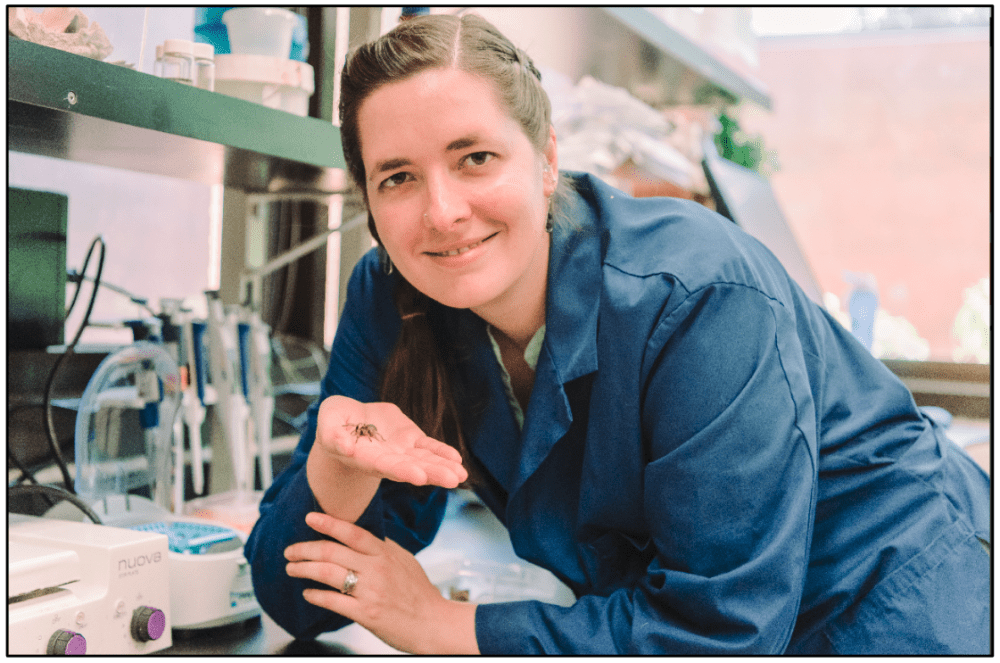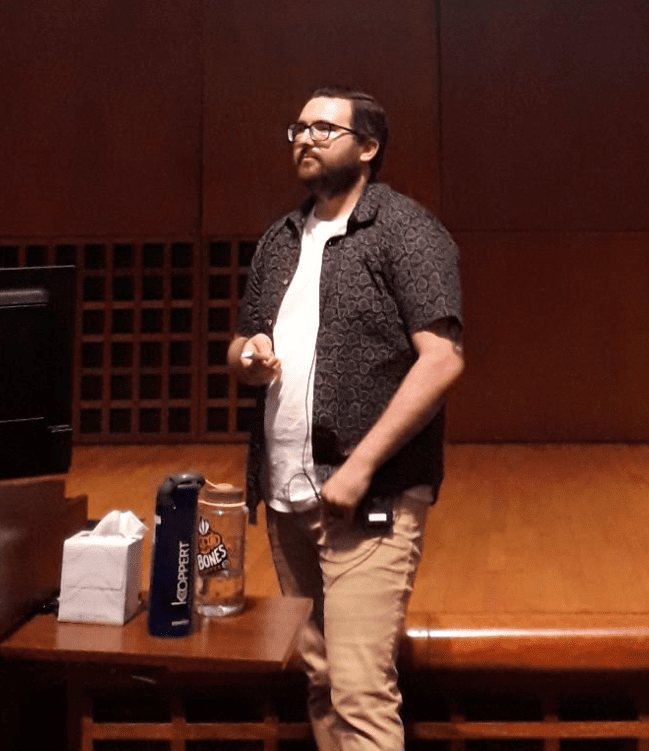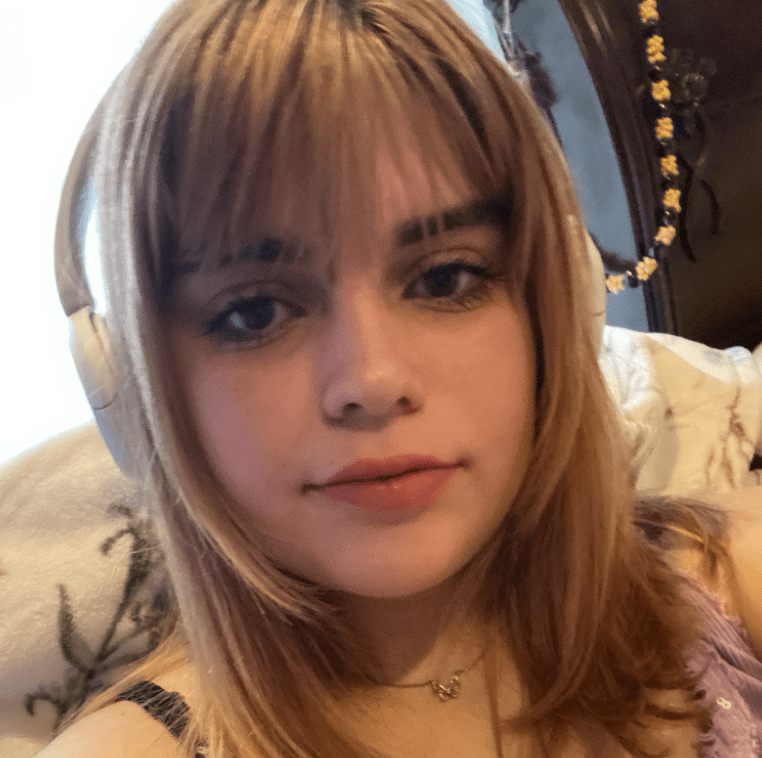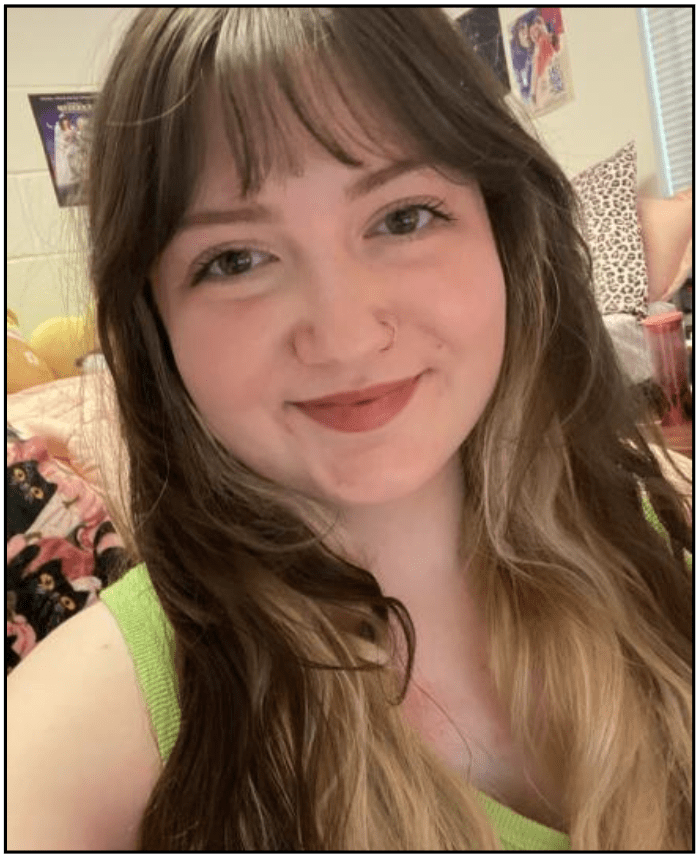People

Principal Investigator
Sarah Stellwagen – Assistant Professor
Biological Sciences Ph.D., Ecology, Evolution, and Behavior, Virginia Tech, 2015.
Entomology M.S., Clemson University, 2011.
Biological Sciences B.A., Minor: Entomology, Clemson University, 2008.
stellwagen@charlotte.edu
PostDocs

Dr. Tyler Brown, NSF Postdoctoral Research Fellow
Dr. Tyler Brown joined the team in the Summer of 2024. Dr. Brown is interested in investigating arthropod evolution using novel behavioral and genetic methods. Having previously studied sexual conflict in Opiliones, he is now researching phenotypic plasticity in Keroplatidae glow worms and theridiid spiders. Beyond research, Dr. Brown also values scientific education and outreach.
Graduate Students

Hannah Faye, Ph.D. Student, NSF Graduate Research Fellow
Hannah started the graduate program in Spring 2024. She loves to learn more about invertebrates through the microscopic landscape of the cellular world and is always excited to find answers using molecular and genetic techniques. Hannah aspires to apply her expertise to conservation efforts in order to help preserve and protect the biodiversity of the planet.

Ella Kellner, Ph.D. Student, Herschel and Cornelia Everett Foundation First-Year Doctoral Fellow
Ella completed a year and a half of undergraduate research before joining the lab as a graduate student in the Fall of 2024. She is curious about the evolutionary pathway of silks and what can be learned by comparing silks of different invertebrate species.

Sal DeAndrea, Ph.D. Student
Sal joined the lab in Fall 2024 after a year of undergraduate research. He is passionate about the environment and leveraging insects and other organisms to produce bio-based materials.
Undergraduates

Hope Hulse
Hope started as an undergraduate research assistant in the Spring of 2024. She is interested in studying insects and arachnids, as well as examining what makes them function and why.

Ryan Bennett
Ryan started as an undergraduate research assistant in the Fall of 2024. He loves learning about spiders and is particularly interested in behavior and interspecific and intraspecific interactions, both inside and outside of Arachnida.
collaborators

Dr. Mercedes Burns (B.A. Biology, Macalester College; Ph. D. Evolutionary Biology, UMCP) is an Associate Professor at the University of Maryland, Baltimore County. Her lab focuses on the evolutionary biology of sex and sexual conflict and collaborates with the Stellwagen Lab on projects investigating the evolution and function of prey capture adhesives.
Previous Lab members

Abby Warren, Undergraduate Research Assistant
Prospective Graduate and Undergraduate Students
The Stellwagen Lab does not currently have any open graduate student (through 2025) or postdoc positions. Undergraduate openings vary based on semester, please send an email inquiry about undergraduate positions.
I give mentorship preference to students whose interests generally overlap with mine. I focus on spiders (or other arachnids and arthropods that produce relevant materials) in an effort to understand the relationship between the functional aspects of natural biological materials (like silks) and the molecular underpinnings that influence these functional differences.
Undergraduates: Charlotte undergraduate students are encouraged to contact me directly about opportunities to conduct research in my laboratory. These opportunities include participation in the Honors Program, as Undergraduate Research for credit (BIOL 3900), or for regular hourly pay. Undergraduates must first complete an exploratory volunteer semester where they actively participate in weekly laboratory meetings, shadow graduate students and postdocs during research tasks, and participate in laboratory duties such as animal care and maintenance. Students that tend to be successful and move up to more responsibilities and independence are ones that have a genuine passion for arthropods and want to pursue a career in organismal research. Space is limited for undergraduates – preference will go to students that are on an organismal/ecology/evolution career trajectory. Biomedical students are welcome to inquire about positions, however the experience and skills gained in my lab don’t apply as directly to careers in medicine. Undergraduate students must also have at least 3 semesters left before graduation and maintain a 3.0 GPA.
Graduate Students: While ideal candidates for the Master’s or Ph.D. program will have had previous research experience to develop general bench skills and some experience or interest in computational biology, enthusiasm and excitement for my area of research is the most important criteria I will consider. Research is challenging and working through problems and difficulties takes dedication – burn out can be quick if the excitement isn’t there. The lab combines sequencing and material property data, so students should be intellectually interested in including sequence data with their projects. Charlotte is a great environment for integrative research and I envision students in my lab pursuing projects that include field, lab, and computational components.
If you are interested in joining, please send me an email at stellwagen@charlotte.edu explaining your interest in biomaterials research, arachnology, arthropods, or other interests that might align with the lab.
Everyone is welcome Here
The Stellwagen Lab welcomes ALL students! Consistent with the Klein College of Science’s (KCOS) dedication to critical thinking and engaged citizenship, we hereby affirm our commitment to equal access in all aspects of our lab’s teaching, scholarship, and professional activities.